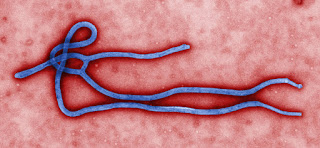 |
| Image source: industrial hygiene services |
In case you were given adequate time to prepare for the attack, you should prepare your disaster kits and formulate a family emergency escape plan.
You should visit your doctor and check immunization records for each of your family members and get yourselves vaccinated for shots you’re missing. You should prepare your home by installing HEPA filter kits on your ventilation or furnace return ducts.
 |
| Image source: huffpost.com |
After the attack, you will need medical checkup in order to see if you’re well, advises Martin Sanders. Should the attack be widespread, it’s possible doctors and responders in your area will be busy. You can wait and listen to any announcements about the nature of the agent and follow instructions from your local government. You can also seek information about the agents in the Center for Disease Control website. Of course, you should still actively seek the attention of medical and emergency personnel as much as possible.
Capt. Ph.D., has completed all requirements needed to obtain a certification as an Associate Safety Professional (ASP) and a Certified Safety Professional (CSP). For more insightful reads on public safety, visit this page.
Disclaimer: This site was prepared by Martin Sanders in his personal capacity. The opinions expressed are the author's own and do not reflect the views of the USPHS, the Department of Health and Human Services, or the United States government.
No comments:
Post a Comment